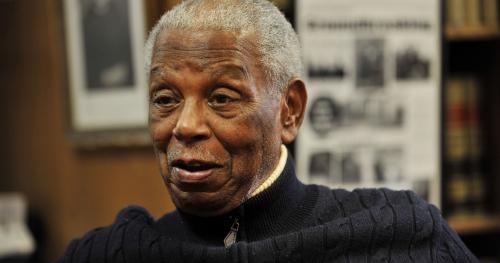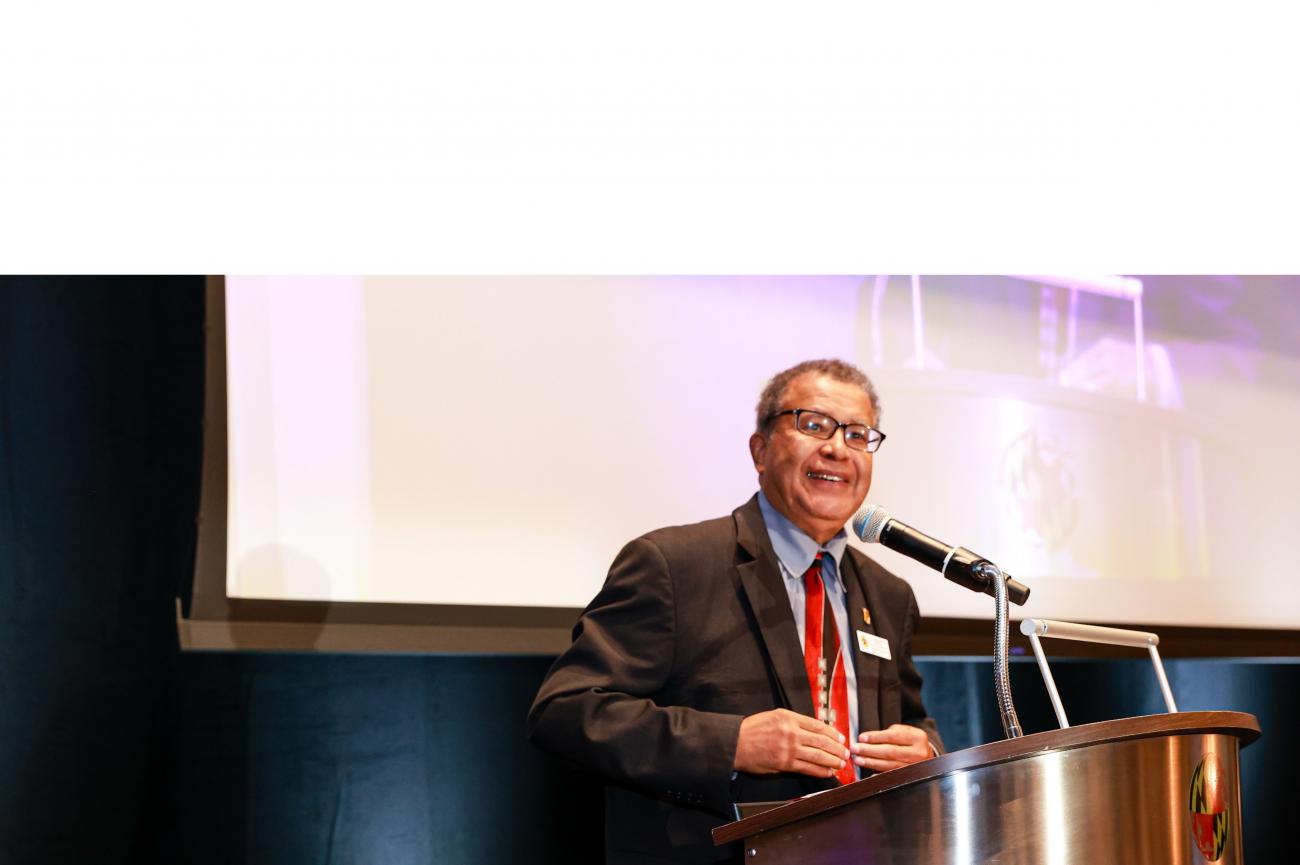“Judge Keith spent his entire adult life as a warrior and champion of civil rights for the underrepresented.”
—Hon. Judge Alexander Williams, Jr.
THE LIFE & LEGACY OF JUDGE DAMON J. KEITH
REFLECTIONS BY JUDGE ALEXANDER WILLIAMS, JR.
COLLEGE PARK, MARYLAND, May 1, 2019 — At the time of his death on April 28th, 2019, ninety-six-year-old Judge Damon J. Keith sat a senior judge for the United States Court of Appeals for the Sixth Circuit. The Sixth Circuit hears appeals of federal cases from Kentucky, Michigan, Ohio, and Tennessee. Judge Keith is widely recognized as the premier jurist in this country—barring none. I know of no judge in this country, or anywhere for that matter, who enjoyed wider respect and admiration than Judge Keith.
Let me remind those who may not be aware that President Lyndon B. Johnson appointed several African-American legal giants to the federal court in the 1960s: A. Leon Higginbotham to the U.S. District Court for the Eastern District of Pennsylvania; Spottswood W. Robinson, William (Bill) Bryant, Aubrey E. Robinson, and Joseph C. Waddy to the U.S. District Court for the District of Columbia; Constance Baker Motley to the U.S. District Court for the Southern District of New York; Wade H. McCree, who practiced law in Detroit, and who was first appointed by President Kennedy to the U.S. District Court for the Eastern District of Michigan and later elevated by President Johnson to the Sixth Circuit; and Judge Keith, also of Detroit, to the U.S. District Court for the Eastern District of Michigan, and who likewise was later elevated to the Sixth Circuit. All of these accomplished individuals are deceased, and until his passing on the 28th, only Judge Keith remained.
Judge Keith’s decisions and rulings have been courageous, brilliant, and earth-shattering. |
Judge Keith grew up in Detroit, Michigan and attended Detroit public schools. He graduated from West Virginia State College (B.A.) and then attended Howard University School of Law School, where he graduated in 1949. He later obtained a Masters of Law from Wayne State University Law School in Detroit. Judge Keith spent his entire adult life as a warrior and champion of civil rights for the underrepresented, or for those the distinguished theologian Howard Thurman described as “the disinherited.” In 1964, Judge Keith was elected co-chair of the Michigan Civil Rights Commission and was a key player during the turbulent times following the Detroit race riots of the 1960s. As I mentioned earlier, in 1967, President Lyndon Johnson nominated Judge Keith and he was subsequently confirmed as a federal judge on the U.S. District Court for the Eastern District of Michigan—later becoming the Chief Judge of that Court.
Judge Keith’s decisions and rulings have been courageous, brilliant, and earth-shattering. I remember being in law school at Howard sitting in a class on federal jurisdiction (federal courts) in 1972, and our professor (Dr. Oliver Morris) brought to class this Federal Judge who lectured to the class about an important case he had ruled upon, and which was then pending in the U.S. Supreme Court. A group of defendants were charged in federal court in Detroit with conspiracy to destroy government property. The defense had requested that the Government disclose information from the Government’s wiretap of the defendants. John Mitchell, who was the United States Attorney General under President Richard Nixon, decided that the Justice Department did not have to disclose or turn anything over to the defendants—arguing that the defendants were part of a domestic organization trying to overthrow the government and that this was a case affecting national security. Because of those concerns, Mitchell concluded that the Justice Department had the power to eavesdrop on citizens on their own without any approval of a judge.
Judge Keith, who presided over the case, rejected that argument and directed the federal prosecutors to turn over the information and disclose all of the illegally intercepted communications—ruling, in effect, that the Fourth Amendment’s protection, which prohibited the federal government from intruding into the private communication rights of citizens, applied equally to Attorney General Mitchell and President Richard Nixon. The government appealed and in a landmark decision handed down in 1972 (called “the Keith case”), a unanimous Supreme Court agreed with Judge Keith; holding that the Fourth Amendment required the Government to obtain a warrant and approval by a federal judge if they wanted to eavesdrop. As a 23-year-old law student, I was transfixed and spellbound—just hearing this brilliant and fearless judge confidently detail and explain his ruling inspired me to pursue my studies with even greater vehemence. I have been a great admirer of Judge Keith over my entire legal, judicial and professional career.
In 1977, Judge Keith was nominated by President Jimmy Carter to the Sixth Circuit, where he continued to sit as a senior judge until his death. Judge Keith has received numerous awards for his distinguished service. He was awarded the Spingarn Medal from the NAACP, and has been awarded honorary doctorates in law from many universities, including Harvard. Moreover, he has influenced many people from the fields of education, law, and public service. He has been a consultant to presidents, congresspersons, governors, university presidents, and people from all walks of life in both the private and public sector. Judge Keith has been a model of excellence, and so many looked up to him for guidance and wisdom. His law clerks, whom he mentored across the years, have gone on to leading positions in this country. They include: Lani Guinier, the first African-American woman to gain tenure at Harvard Law School; Ronald Machen, the former United States Attorney for the District of Columbia; Governor Jennifer Granholm, the 47th Governor of Michigan; Michigan Secretary of State Jocelyn Benson, United States Court of Appeals for the Sixth Circuit, Eric Clay, United States District Judge and former Justice of the Minnesota Supreme Court , Wilhelmina Wright, Judge David C. Simmons, Chief Administrative Law Judge of the D.C. Commission on Human Rights; and Rev. Ademuyiwa Bamiduro, the pastor of Walker Memorial Baptist Church in Washington DC and senior counsel with Facebook.
No one has donned the judicial robe with greater distinction, integrity, and the spirit of humility than Judge Damon J. Keith. He dedicated his entire adult life to public service, and had a courageous obsession for ensuring liberty and equal justice for all persons in our society. Judge Keith, in my view, was the tallest tree in the forest of justice. While his legacy will remain, his intellect, wisdom, humility and passion for justice will be missed. Judge Keith will rightfully take his well-earned place among the great judiciary minds in our nation’s history, and while he now finds rest from his powerful years of labor, the Judge’s legacy lives on.
###
If you would like more information about this topic, please contact Ms. Valerie Jones at 301. 314. 2062, or email vjones27 [at] umd.edu ().



